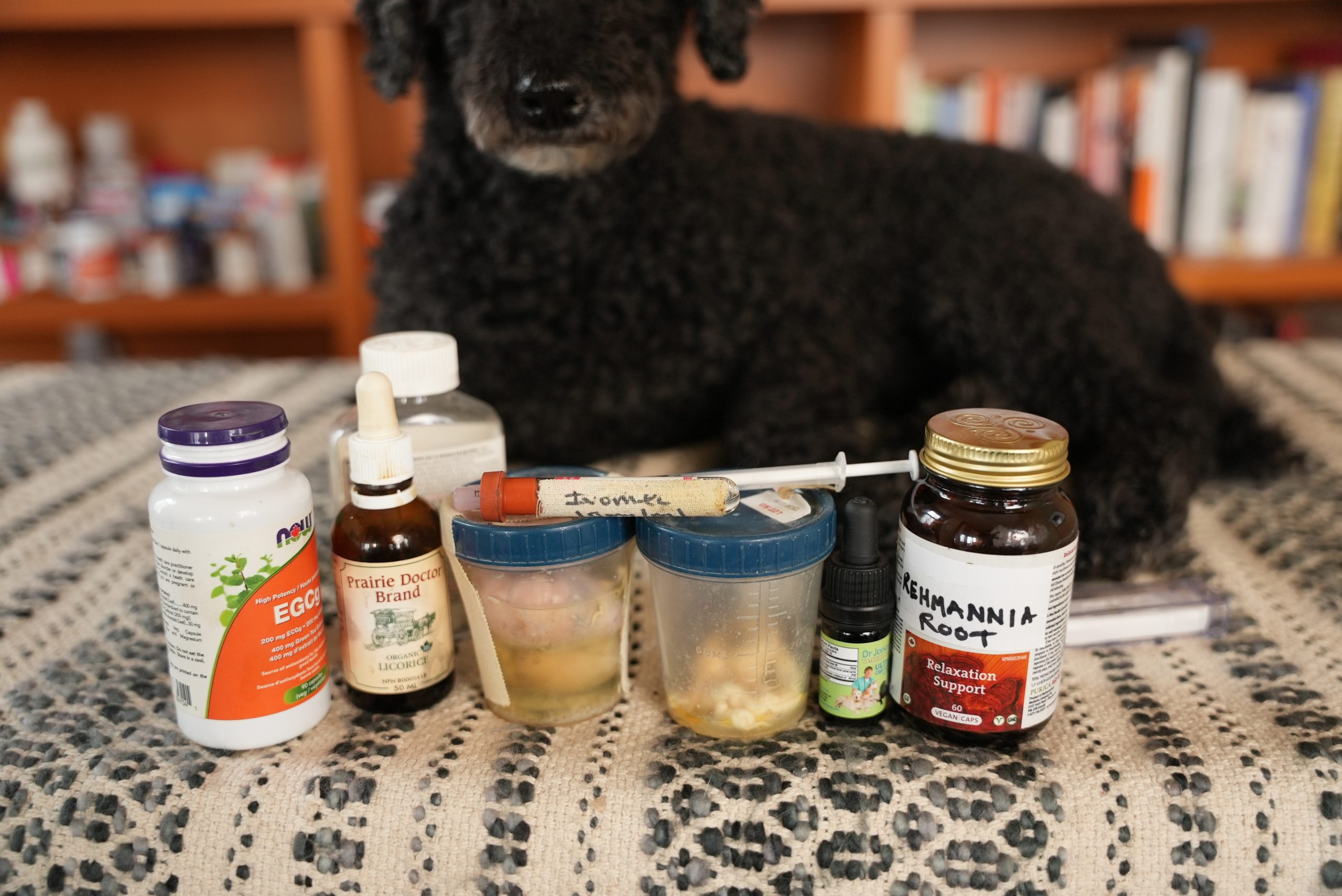The De-wormer Ivermectin for Autoimmune Disease in Dogs and Cats?
Understanding Autoimmune Diseases in Pets
In my experience with dogs and cats, autoimmune diseases, where the immune system mistakenly attacks the body itself, are among the most challenging conditions to manage. Conventional treatments are available, but they often come with severe side effects. Today, I’m excited to share a new alternative treatment that could significantly benefit your pet. For those eager to learn more about natural pet health and wellness, I highly recommend subscribing to Veterinary Secrets for a wealth of information.
The Immune System’s Battle: Recognizing Autoimmune Diseases
In autoimmune diseases, the immune system, which typically fights off foreign invaders like bacteria and viruses, gets confused. Instead of defending the body, it starts attacking it, affecting various parts like the skin, red blood cells, platelets, or even causing systemic diseases like lupus. Conventional treatments, such as corticosteroids or stronger immunosuppressives, can be effective, but they often lead to serious side effects like diabetes, Cushing’s Disease, or internal bleeding.

Five Alternative Treatments for Autoimmune Diseases in Pets
I’ve explored several alternative treatments for autoimmune diseases, and I’m excited to share them with you:
-
Green Tea Extract: Rich in the immune-modulating ingredient EGCG, green tea extract has shown success in treating autoimmune diseases like immune-mediated polyarthritis. It’s a potent anti-inflammatory, and I’ve seen good results with a standard dosage for dogs and cats.
-
Licorice Root: Known as the natural corticosteroid, licorice root is often used for pets with allergies. Its active ingredient, glycyrrhizin acid, can suppress T-cell proliferation, a common issue in autoimmune diseases.
-
Rehmannia Root: A significant herb in Chinese medicine, Rehmannia root is beneficial for autoimmune diseases, especially in reducing kidney damage caused by immune complexes.
-
CBD: The cannabinoids in the cannabis plant, especially CBD, have immune-modulating properties. CBD can suppress cytokine production, making it a potential natural immunosuppressive with minimal side effects.
-
Ivermectin: Surprisingly, this common dewormer has shown promise in treating autoimmune diseases by modulating T-cell responses. While specific doses for autoimmune diseases aren’t published yet, we can extrapolate from doses used for other conditions like Demodex.
A New Hope with Ivermectin
Ivermectin, traditionally a dewormer, has shown exciting potential in treating autoimmune diseases by affecting T-cell responses, crucial in autoimmune diseases. Although specific dosing information for autoimmune conditions is not yet available, I’ve found that doses used for conditions like generalized demodicosis can offer a starting point. However, it’s crucial to note that Ivermectin is not suitable for all breeds due to the MDR1 gene deficiency.
Witnessing the harsh side effects of strong immunosuppressives on dogs in my practice has been disheartening. Discovering these alternative options, especially the potential of Ivermectin, offers a ray of hope for a more gentle yet effective treatment for our beloved pets. For more insights into natural pet health and to receive a copy of my free book, don’t forget to subscribe to Veterinary Secrets and click the link provided.

Does ivermectin show a promise with cancer dogs
Studies demonstrated that ivermectin, in addition to the classic antiparasitic function, has an antitumor action, in different types of tumors
Here’s another video to prove it.
https://youtu.be/oAEhxbGcktQ
Hello Dr Jones. I’ve ordered the CBD and a feline health formula,, waiting anxiously for delivery.
I cannot remember if I ordered the canine powder,,, as well. But I soon will. My real struggle here, with my 6 yo Yorkie shnauzer mix,, is her skin. I’ve lost years probably of sleep, and so has she, due to her scratching and rolling/ biting/ etc. nothing seems to give relief for very long. I have anti fungal shampoo/ Castile shampoo , everything in between. I keep her shaved short, I do it myself. One holistic provider for products suggested she had MANGE. so we do these little pills. Still, for no reason, out of the blue, she errors in red patches,,, and hot all over her body, almost like a NIGHTSWEAT,,, and there we go,,, more sleep lost. My own immune system now is suffering, and I have Covid. Please a you suggest??
Here’s an article that helps with skin issues and you can check your account with us
NEW Natural Remedy for Allergies, Skin Infections and Hair Balls
Castor Oil for Pets
Castor oil is a multi-purpose vegetable oil that people have used for thousands of years.
It’s made by extracting oil from the seeds of the Ricinus communis plant.
These seeds, which are known as castor beans, contain a toxic enzyme called ricin. However, the heating process that castor oil undergoes deactivates it, allowing the oil to be used safely.
Castor oil has a number of medicinal uses.
1. A Powerful Laxative/Hair Ball Treatment
Perhaps one of the best-known medicinal uses for castor oil is as a natural laxative. It’s classified as a stimulant laxative, meaning that it increases the movement of the muscles that push material through the intestines, helping clear the bowels.
Stimulant laxatives act rapidly and are commonly used to relieve temporary constipation.
In fact, several studies have shown that castor oil can relieve constipation.
While castor oil is considered safe in small doses, larger amounts can cause abdominal cramping, nausea, vomiting and diarrhea
Although it can be used to relieve occasional constipation, castor oil is not recommended as a treatment for long-term issues.
It is also an effective intermittent remedy for Hair Balls in Cats
Dog and Cat Dose: ½ teaspoon/ 20lbs twice daily
Human Dose: 1 tablespoon
2. Skin Disease/Allergy Help
Castor oil is rich in ricinoleic acid, a monounsaturated fatty acid.
These types of fats act as humectants and can be used to moisturize the skin. Humectants retain moisture by preventing water loss through the outer layer of the skin
Castor oil is thick, so it’s frequently mixed with other skin-friendly oils like almond, olive and coconut oil to make an ultra-hydrating moisturizer.
Though applying castor oil to the skin is considered safe for most, it can cause an allergic reactions…
SUMMARY: Castor oil can help lock moisture in the skin. IF your dog or cat is itching with especially DRY SKIN, consider applying a castor/coconut oil combination
3. Promotes Wound Healing
Applying castor oil to wounds creates a moist environment that promotes healing and prevents sores from drying out.
Venelex, a popular ointment used in clinical settings to treat wounds, contains a mixture of castor oil and Peru balsam, a balm derived from the Myroxylon tree
Castor oil stimulates tissue growth so that a barrier can be formed between the wound and the environment, decreasing the risk of infection. It also reduces dryness and cornification, the buildup of dead skin cells that can delay wound healing
Studies have found that ointments containing castor oil may be especially helpful in healing pressure ulcers, a type wound that develops from prolonged pressure on the skin.
One study looked at the wound-healing effects of an ointment containing castor oil in 861 nursing home residents with pressure ulcers.
Those whose wounds were treated with castor oil experienced higher healing rates and shorter healing times than those treated with other methods
SUMMARY: Castor oil helps heal wounds by stimulating the growth of new tissue, reducing dryness and preventing the buildup of dead skin cells. CONSIDER for your dogs/cats with speeding up wound healing, and for dogs with PRESSURE ULCERS on the elbows.
4. Impressive Anti-Inflammatory Effects – Natural Arthritis Treatment
Ricinoleic acid, the main fatty acid found in castor oil, has impressive anti-inflammatory properties.
Studies have shown that when castor oil is applied topically, it reduces inflammation and relieves pain.
The pain-reducing and anti-inflammatory qualities of castor oil may be particularly helpful to those with an inflammatory disease such as rheumatoid arthritis or psoriasis.
Animal and test-tube studies have found that ricinoleic acid reduces pain and swelling
One study demonstrated that treatment with a gel containing ricinoleic acid led to a significant reduction in pain and inflammation when applied to the skin, compared to other treatment methods
A test-tube component of the same study showed that ricinoleic acid helped reduce inflammation caused by human rheumatoid arthritis cells more than another treatment
Aside from castor oil’s potential to reduce inflammation, it may help relieve dry, irritated skin in those with psoriasis, thanks to its moisturizing properties.
SUMMARY: Castor oil is high in ricinoleic acid, a fatty acid that has been shown to help reduce pain and inflammation in test-tube and animal studies. IF you have a pet with localized ARTHRITIS, consider Castor Oil topically.
5. Reduces Dandruff, Skin Infections/Yeast…
Castor oil has several qualities that may help reduce acne symptoms. (feline acne is very common, dog’s get similar skin infections)
Inflammation is thought to be a factor in the development and severity of acne, so applying castor oil to the skin may help reduce inflammation-related symptoms
Castor oil has antimicrobial properties that may help fight bacterial overgrowth when applied to the skin.
One test-tube study found that castor oil extract showed considerable antibacterial power, inhibiting the growth of several bacteria, including Staphylococcus aureus
Castor oil is also a natural moisturizer, so it may help soothe the inflamed and irritated skin typical in those with acne.
Yeast
Castor oil is used for oral yeast infections in people, and may be beneficial for our dogs that have yeast infections on their skin/paws secondary to allergy.
Dandruff
This can be a big problem for MANY dogs… The moisturizing and anti-inflammatory properties of castor oil make it an excellent option to keep hair soft and hydrated and help reduce dandruff symptoms
THE BOTTOM LINE
People/Pets have used castor oil for thousands of years as a powerful natural treatment for a variety of health issues.
It has been shown to help relieve constipation and moisturize dry skin, among many other uses.
If you are searching for an affordable, multi-purpose oil to keep in your medicine cabinet, castor oil may be a good choice.